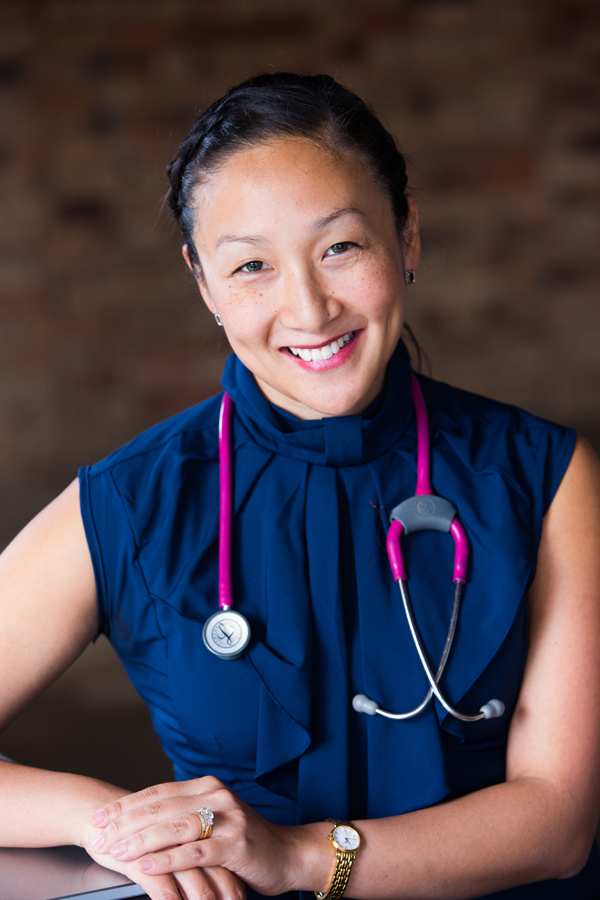Non-medication based strategies to help school kids with attention and concentration
As I have probably alluded to in previous blog posts, one of the most common presentations to my general paediatric practice are children who have a “short attention span, poor concentration, and cannot sit still.”
I think it would be fair to say that most people will have heard of ADHD before, and I have blogged about it in the past (try this link: https://kids-health.guru/adhd/). It is important to note however, that not all children that have difficulties with their attention and concentration will meet the diagnostic criteria for a formal diagnosis of ADHD and that poor concentration and inattention (as well as hyperactivity) can be NORMAL in young children. Today we are focussing on school-age kids.
Different paediatricians have different approaches to how they like to manage the symptoms of inattention and poor concentration. I have my own approach which involves non-medication based interventions FIRST, and prescription medication last. Many parents have their reservations about the types of medications used to treat ADHD (see my past blog post at: https://kids-health.guru/stimulant-medication-adhd/) and in my experience, just as there are some parents who opt to trial medication, there are some parents who decide against medication after weighing up the benefits vs the risks for their child.
The evidence in the literature says that stimulant medications (for example, methylphenidate (Ritalin/Concerta), dexamphetamine etc) are very effective in helping the vast majority of children with a diagnosis of ADHD in relieving their symptoms. Having said this, I am of the opinion that there is certainly a subset of patients who respond well to the non-medication based interventions and in whom it is possible to avoid medication altogether. Admittedly this is a small subset of patients, but if I can manage a child’s symptoms well without medication, then I personally prefer to do this. There are also the children who have milder inattention/hyperactivity symptoms, who do NOT have a diagnosis (and thus for whom the Government does not subsidise medication under the PBS) who still need ways to manage their symptoms.
So today is about NON-DRUG methods to help kids with their attention and concentration – and there are HEAPS of them!
This should all start with a hearing and vision assessment (I recommend standard optometry testing for visual acuity (NOT behavioural optometry) and standard hearing testing – pure tone audiometry (NOT “Central Auditory Processing Disorder testing”), and if your child displays symptoms of sleep disturbance (eg snores, pauses in breathing whilst asleep, restless sleeper, wakes up tired, daytime sleepiness etc) then seek the advice of your doctor.
[For those of you interested in the medications used in ADHD, I have blogged previously about this too – see link: https://kids-health.guru/stimulant-medication-adhd/]
PARENTS and homework time.
Now all parents who have a child that struggles to concentrate will be able to relate to the battle that can be homework time. Here are some tips to make things easier… essentially trying to figure out what causes distraction for your child, and then systematically trying to eliminate those things.
- Ensure homework area is set up correctly
- Not too hot, not too cold
- Make sure the desk is NOT cluttered – just the task at hand in front of the child
- A tick-off list of tasks to complete will help to keep the child focussed. Blu-tac this to the wall infront of them, or to the desk itself
- TV/radio off; no toys around to distract
- Make sure they aren’t hungry – healthy nutritious low GI snacks
- Do homework when the child is not overtired (eg before school or immediately after school rather than at 7pm)
- Homework should be completed in a supervised area (especially kids on computers with internet access) – eg at the dinner table or at a desk in an open living area
- No phone or computers/electronics until after homework is completed (includes physically taking phones away so kids can’t text/message friends when a message arrives)
- Visual schedules – especially helpful routines in morning and afternoon
- The homework itself:
- Break tasks down into manageable chunks
- Make learning active – eg get him/her to underline reading material or highlight
- One task at a time
- Build in movement breaks (and pick a reasonable amount of work time for the child and their age)
- When giving directions, get within arm’s length, get eye contact, use simple language and get them to repeat it back
- Making sure kids have a good night’s sleep
School
Kids are at school for 6-7 hours of the school day, so it makes sense that many of our interventions should apply to classroom time! These are some of the suggestions I have found to be helpful for kids at school.
- Sit the child up the front of the classroom in the centre (it helps to NOT have the rest of the class in direct line of sight!); sit near the teacher
- Surround them with well-behaved, conscientious classmates (rather than their best mate who might be tempted to distract them)
- Making sure they aren’t HUNGRY
- A good breakfast (low glycaemic index)
- A nutritious and low GI lunch – I have always planned to do a blog on this… but until I get around to it, here are some good links to ideas/recipes:
- One-on-one teaching when possible or teaching in small groups
- Reduce extraneous noise where possible; ear piece-microphone device (“FM system” – teacher wears a wireless microphone that transmits directly to an ear piece worn by the child)
- Sensory profiling by an OT or paediatric physio – classroom modification and tools based on this, for example “Move and sit” cushion, Hoki stool, slope boards, pencil grips, fidget toys, Thera/elastic bands around chair legs to kick, silicone chewing necklaces for hyperoral kids etc – talk to your paediatric OT/physio.
TEACHERS, lessons and the classroom
Now obviously I am not a teacher so strategies around lesson planning and structure (to support attention and concentration) and classroom environment are not my area of expertise. Your child’s teacher is the education expert and you should always consult with them around what might work for your child AND fit in with the rest of the class. Reading around the topic however I found the following list at https://www.teachstarter.com/blog/10-ways-to-improve-student-concentration/ and I have inserted a few other links as well that might be useful.
- Plan lessons with intervals; even if you can’t give the children a “break,” you can change direction of the lesson (eg switch from working individually to working in pairs) in intervals consistent with the expected attention span of the kids in your class (eg for 7 years olds every 15-20 min)
- Make “Brain breaks routine” – set an alarm to remind yourself!
- Consider the visual environment – some students struggle with the sensory overload of an overly active classroom space; if the visual environment cannot be changed, then consider sitting the child in a position where the distraction is least visible (eg up the front)
- Ask students to rate tasks – if a child is avoidant or distracted over a task, ask them to rate the level of challenge. If it is too hard, ask the student what they think might make the task a little easier
- Create a daily mindfulness practice routine (5-10min every day)
- Keep your own eye on the time – anticipate when certain students might start to struggle
- Flexible seating arrangements in the classroom – be open to suggestion – eg Hoki stools, wobble boards/cushions à cheaper alternatives – a partially filled hot water bottle with tap water; sit distractible kids away from doors, windows and high-traffic areas.
- Ensure access to “fast-finisher” activities
- Get students moving!! Eg run the oval, other in-place activities
So as you can see there are PLENTY of things we can do to support children and their attention and concentration at home and at school, that do not involve medication.
I hope you have found this blog post useful. If you are worried about your child’s attention and concentration, talk to your GP in the first instance, who can organise some preliminary tests and refer you on if necessary.
Until next blog post,
Stay well!!
xxDr Megs

